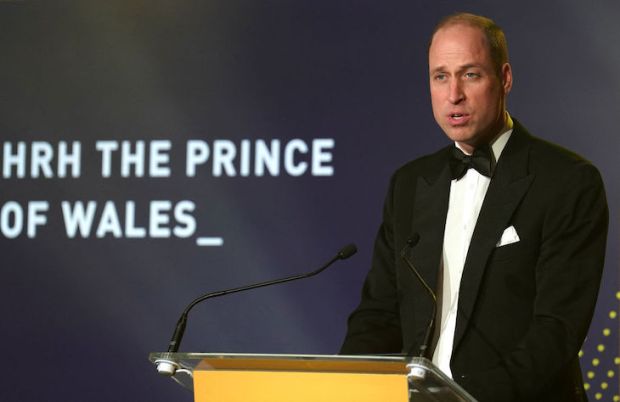Kate Forbes’s religious views have sparked a backlash among her SNP colleagues. The party leadership contender’s announcement that she would not have supported gay marriage ‘as a matter of conscience’, led to four of her MSP colleagues distancing themselves from Forbes. And there could be more departures yet: earlier today, Forbes also let slip that she is personally opposed to childbearing out of wedlock. She said:
‘[Having children outside of marriage] is something that I would seek to avoid for me personally, but it doesn’t fuss me, the choices that other people make. In terms of my faith, it says that sex is for marriage and that would be the approach that I would practice.’
As Bale concluded, ‘the SNP membership is actually a little more socially conservative than some might imagine’.
So is Forbes’s leadership bid already scuppered? What really counts, of course, is how the SNP membership view her: they are, after all, the ones who get to decide who the next First Minister will be. Here there may be some good news for Forbes.
Tim Bale, professor of politics at Queen Mary University of London, conducted a study in 2018 that analysed the memberships of the UK’s main political parties. While the SNP are regarded by many south of the border, in part due to the recent gender bill, as being pretty ‘woke’, Bale’s research presented some contradictory findings.
On the question of whether party members were in favour on gay marriage, the SNP membership ranked the third lowest out of the four parties, with the Tories least in favour. While the party was significantly more happy about equal marriage than Conservative members, the number of those who commented that they ‘supported’ or ‘strongly supported’ gay marriage were still lower than those who voted for the same options in the Labour and Liberal Democrats’ memberships. This suggests a certain sympathy among SNP supporters when it comes to Forbes’s views.
Bale’s research also revealed that the vast majority of SNP members tend to be from older generations. The party’s make-up has changed considerably in recent years. The party saw a huge increase in its membership in 2014 post-indyref, and again in 2018, after SNP MPs staged a walkout from Westminster over Brexit discussions. In fact, the party reported that it had seen 5,000 sign-ups in the 24 hours following that drama – approximately 100 times more than the usual sign-up level.
Nicola Sturgeon’s gender bill debacle may well have led to an exodus, rather than a new arrival, of supporters. But from Bale’s study, we know that 82 per cent of the SNP membership were aged 40 and over. Four in ten of the entire membership was over the age of 60. A mere 18 per cent of SNP members were aged 39 and under. With the findings from Bale’s study, we know there is at least some overlap between those SNP members of an older generation and those not in favour of gay marriage.
!function(){“use strict”;window.addEventListener(“message”,(function(e){if(void 0!==e.data[“datawrapper-height”]){var t=document.querySelectorAll(“iframe”);for(var a in e.data[“datawrapper-height”])for(var r=0;r<t.length;r++){if(t[r].contentWindow===e.source)t[r].style.height=e.data[“datawrapper-height”][a]+”px”}}}))}();
Bale’s research (which also analysed demographics for members of the Labour party, the Liberal Democrats and the Conservatives) also found that almost a quarter of SNP members felt that ‘young people today don’t have enough respect for traditional British values’ – second only, albeit by a large margin, to members of the Conservative party.
The same proportion of SNP members also felt that ‘the death penalty for some crimes is the most appropriate sentence’; again, second only to Conservative party members. And almost 40 per cent of the SNP membership felt that ‘people who break the law should be given stiffer sentences’, once more, second only to the Conservative membership. As Bale concluded, ‘the SNP membership is actually a little more socially conservative than some might imagine, although not in the same league as Tory members’.
Bale and his colleagues also analysed which people party members wanted to see more of. Given the study was tailored towards UK parties, this was in respect to the Commons, but the results are interesting. The SNP were more interested than other parties to see more young people in parliament, and just under 90 per cent wanted to see more local people in politics. However, the SNP membership was less enthused about seeing more LGBT representation in the Commons, with just over 50 per cent of the membership expressing an interest in this.
What does all this tell us? That the SNP membership is not necessarily all as ‘progressive’ as some suggest. There remains a level of social conservatism within the party that may have been impacted further in recent months by the controversies surrounding the gender bill. And, as one Scottish caller said on BBC Radio Scotland this morning, despite the backlash on Twitter, some people feel that perhaps the general public are intolerant ones, of the finance minister and her freedom to express her religious views.
The bookies’ odds have responded to the controversy of the last 24 hours and now Ash Regan has moved into second place. But these are early days yet. So, for Kate Forbes, may it still be all to play for.
Got something to add? Join the discussion and comment below.
Get 10 issues for just $10
Subscribe to The Spectator Australia today for the next 10 magazine issues, plus full online access, for just $10.




















Comments
Don't miss out
Join the conversation with other Spectator Australia readers. Subscribe to leave a comment.
SUBSCRIBEAlready a subscriber? Log in